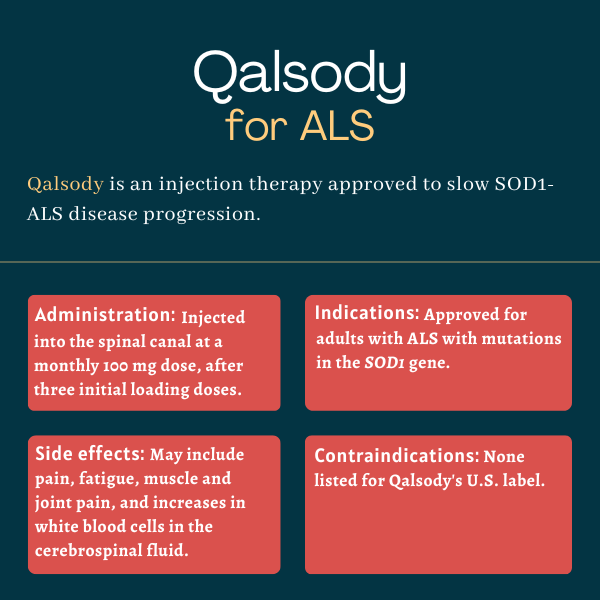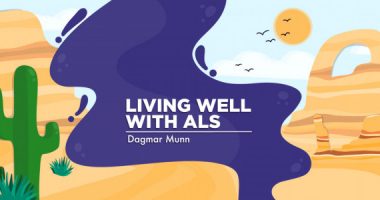FAQs about Qalsody
The U.S. Food and Drug Administration (FDA) approved Qalsody in May 2023 for the treatment of adults with amyotrophic lateral sclerosis (ALS) associated with mutations in the SOD1 gene. The decision, marking the first conditional approval of an ALS treatment in the U.S., was granted under the agency’s accelerated approval pathway. Continuous approval of Qalsody may be contingent on confirmation of its clinical benefits in ongoing clinical trials.
Data spanning the VALOR clinical trial and its open-label extension part, which supported the U.S. approval of Qalsody for amyotrophic lateral sclerosis (ALS), have demonstrated that early treatment can slow the progression of ALS associated with SOD1 gene mutations and extend survival compared with a delayed treatment start. However, similar to other available ALS therapies, Qalsody is not expected to reverse or reduce symptoms that are already evident at treatment initiation.
While the clinical benefits of Qalsody were generally observed after one year of treatment in trials, marked reductions in disease biomarkers have been seen in some patients as early as about 12 weeks, or three months, after the start of treatment. Still, amyotrophic lateral sclerosis can manifest and progress very differently from patient to patient, so it’s not clear when someone should expect to experience benefits from the therapy.
Interactions between alcohol and Qalsody have not been reported. However, because some medications are known to exacerbate disease symptoms, patients who are planning to drink alcohol while taking the medication should ask their healthcare team whether it is safe to do so in their particular case.
No, Qalsody cannot cure people with SOD1-related amyotrophic lateral sclerosis. Clinical data has demonstrated it can slow disease progression and extend survival in some patients, but individuals taking the therapy will continue to have their disease progress and become less able to perform daily activities as time goes on.
Related Articles

 Fact-checked by
Fact-checked by 





